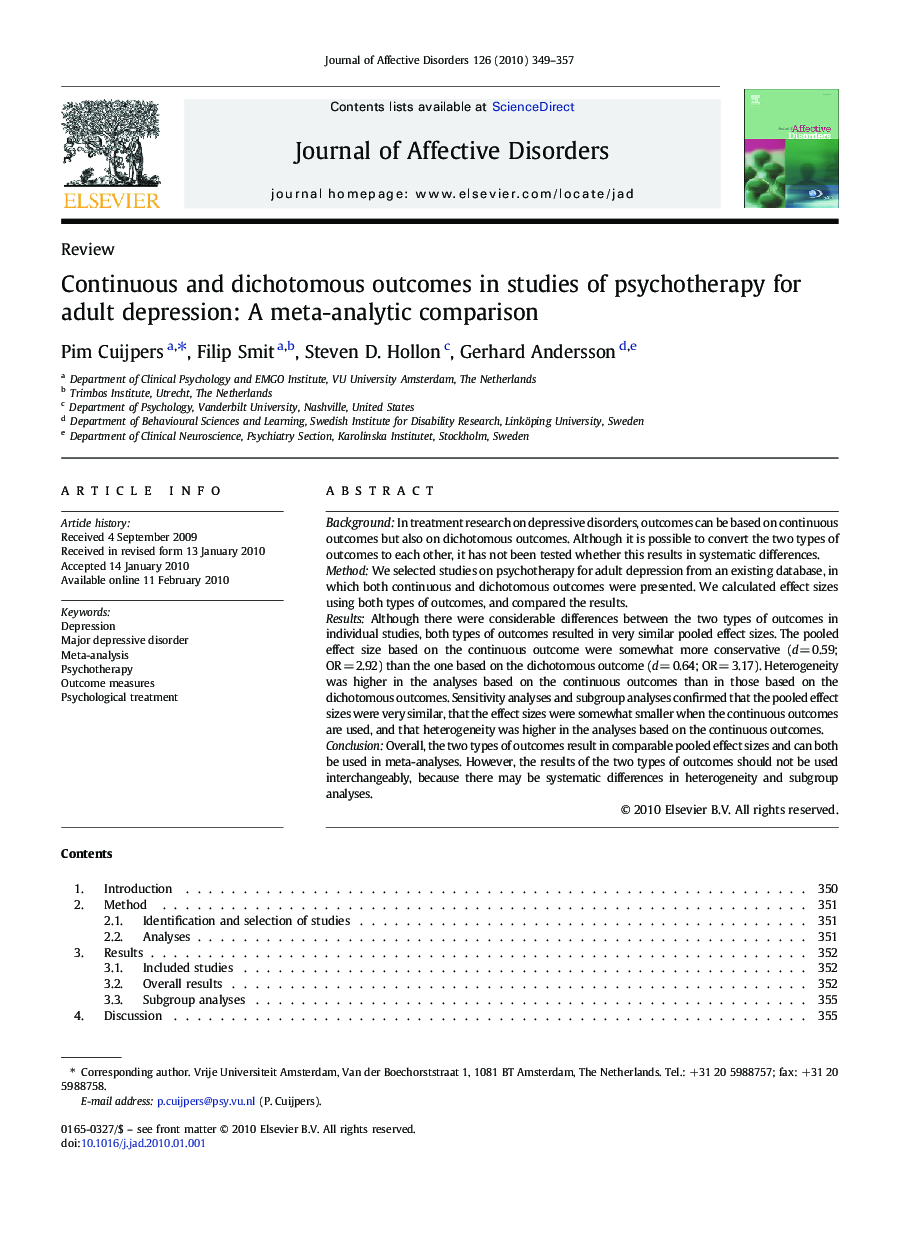| کد مقاله | کد نشریه | سال انتشار | مقاله انگلیسی | نسخه تمام متن |
|---|---|---|---|---|
| 4186671 | 1277603 | 2010 | 9 صفحه PDF | دانلود رایگان |

BackgroundIn treatment research on depressive disorders, outcomes can be based on continuous outcomes but also on dichotomous outcomes. Although it is possible to convert the two types of outcomes to each other, it has not been tested whether this results in systematic differences.MethodWe selected studies on psychotherapy for adult depression from an existing database, in which both continuous and dichotomous outcomes were presented. We calculated effect sizes using both types of outcomes, and compared the results.ResultsAlthough there were considerable differences between the two types of outcomes in individual studies, both types of outcomes resulted in very similar pooled effect sizes. The pooled effect size based on the continuous outcome were somewhat more conservative (d = 0.59; OR = 2.92) than the one based on the dichotomous outcome (d = 0.64; OR = 3.17). Heterogeneity was higher in the analyses based on the continuous outcomes than in those based on the dichotomous outcomes. Sensitivity analyses and subgroup analyses confirmed that the pooled effect sizes were very similar, that the effect sizes were somewhat smaller when the continuous outcomes are used, and that heterogeneity was higher in the analyses based on the continuous outcomes.ConclusionOverall, the two types of outcomes result in comparable pooled effect sizes and can both be used in meta-analyses. However, the results of the two types of outcomes should not be used interchangeably, because there may be systematic differences in heterogeneity and subgroup analyses.
Journal: Journal of Affective Disorders - Volume 126, Issue 3, November 2010, Pages 349–357